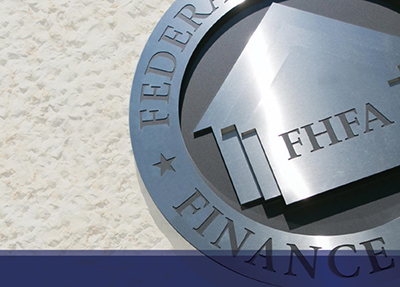
FHFA Targets Increases to GSE Pricing Framework; Upfront Loan-Level Pricing Adjustments Take Effect Apr. 1

The Federal Housing Finance Agency on Wednesday announced targeted increases to Fannie Mae and Freddie Mac’s upfront fees for certain high-balance loans and second-home loans, effective Apr. 1.
FHFA said upfront fees for high-balance loans will increase between 0.25 percent and 0.75 percent, tiered by loan-to-value ratio. Fannie Mae and Freddie Mac refer to these mortgages as high-balance loans and super-conforming loans, respectively. For second-home loans, upfront fees will increase between 1.125 percent and 3.875 percent, tiered by loan-to-value ratio.
Existing pricing treatment of certain programs – such as HomeReady, Home Possible, HFA Preferred and HFA Advantage – will not be altered by the new fees. In addition, loans to first time homebuyers in high-cost areas with incomes at or below 100 percent of area median income will have no specific high balance upfront fees.
“These targeted pricing changes will allow the Enterprises to better achieve their mission of facilitating equitable and sustainable access to homeownership, while improving their regulatory capital position over time,” said Acting Director Sandra L. Thompson.
Mortgage Bankers Association President & CEO Robert Broeksmit, CMB, issued a statement following the FHFA announcement:
“The pricing increases on high-balance conforming and second-home loans are not surprising given FHFA’s commitment to undertaking a full review of the fees charged by the GSEs, as well as the significant recent increase in conforming loan limits,” Broeksmit said. “Higher fees for high-balance conforming loans and second-home loans should provide an opportunity for the GSEs to lower fees on the mission-centric portions of their businesses that primarily serve first-time and low- to moderate-income borrowers. The use of pricing as a tool to manage loan deliveries is more reasonable than previous efforts that featured percent-of-delivery thresholds, and the extended implementation period will protect consumers and lenders from cost increases on loans already in process.”
Broeksmit noted MBA also supports a strong and vibrant private market for mortgages, including portfolio holdings and a robust private-label security market. “These pricing changes will likely lead many lenders to consider alternative private executions,” he said. “Regulators and industry participants should continue to make it easier for lenders to seamlessly move to other investor channels, including by participating in MISMO’s efforts to standardize data for PLS delivery.”
FHFA set an objective in its 2022 Scorecard for Fannie Mae, Freddie Mac, and Common Securitization Solutions for the Enterprises to update the current pricing framework to increase support for core mission borrowers, while fostering capital accumulation, achieving viable returns and ensuring a level playing field for small and large sellers.
